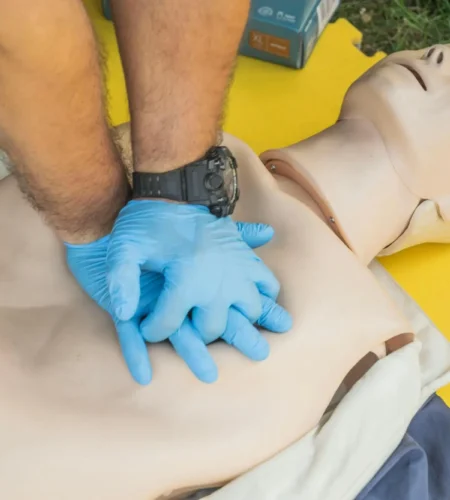Emergencies can happen at any time and in many different ways. They can be medical problems, natural disasters, or even everyday accidents. When something unexpected happens, knowing what to do can help save lives.
Many people feel scared or unsure in these moments because they don’t have the training. But learning a few basic lifesaving skills can give you the confidence to take action. Explore the key insights ahead.
Learning Basic First Aid
One of the most important things you can learn is basic first aid. These are simple medical steps that you can take before help arrives.
CPR
One of the most powerful tools is CPR, which stands for cardiopulmonary resuscitation. You use this when someone’s heart has stopped.
It involves pushing on the person’s chest and sometimes giving breaths to keep blood flowing. This can keep the person alive until help comes. Proper CPR techniques can be learned through certified training programs like those offered at https://cprcertificationnow.com.
Heimlich Maneuver
Another lifesaving skill is how to help someone who is choking. This can happen when food or another object gets stuck in the throat.
You can use the Heimlich maneuver, which means standing behind the person and giving quick pushes above their belly button. This helps get the object out and allows them to breathe again.
First-Aid
Taking care of wounds is another part of first aid. If someone is bleeding, it’s important to clean the area and cover it with something clean to stop infection. First aid is something you can practice and learn in classes from your local health center.
Getting Ready Before Emergencies
The best time to get ready for an emergency is before it happens. When you have a plan, you can act faster and stay safer. Start by putting together an emergency kit.
This kit should have clean water, food that doesn’t spoil, a flashlight, batteries, and a first aid kit. If you take medicine every day, keep some in your kit too.
It’s also a good idea to make a plan with your family. Everyone should know what to do and where to go if something happens. For example, if a storm or fire hits, you should know a safe place to meet. Talk about how you will reach each other if phones don’t work.
Staying Calm in Tough Situations
Even if you know what to do, staying calm can be hard when something scary happens. But being calm helps you think clearly and make good decisions. Try to take slow, deep breaths to lower your stress. Remind yourself that you know what to do.
Focus on what’s most important. Look around and decide who needs help right away. Take one step at a time.
Do your best with the skills you have. Helping even in small ways can make a big difference.
Lifesaving Skills: Essential Methods for Safeguarding Others and Yourself
Emergencies don’t give warnings, but being prepared helps you feel more in control. When you learn basic lifesaving skills, you are better able to protect yourself and others. Knowing what to do during an emergency can turn fear into action.
Take a class, make a plan, and talk to your family today. The time you spend learning now could save lives later.
Stay inspired. Head to our blog for even more helpful content!
Also Read-Chiropractor Puns: Laugh Your Way to Better Health


Comments